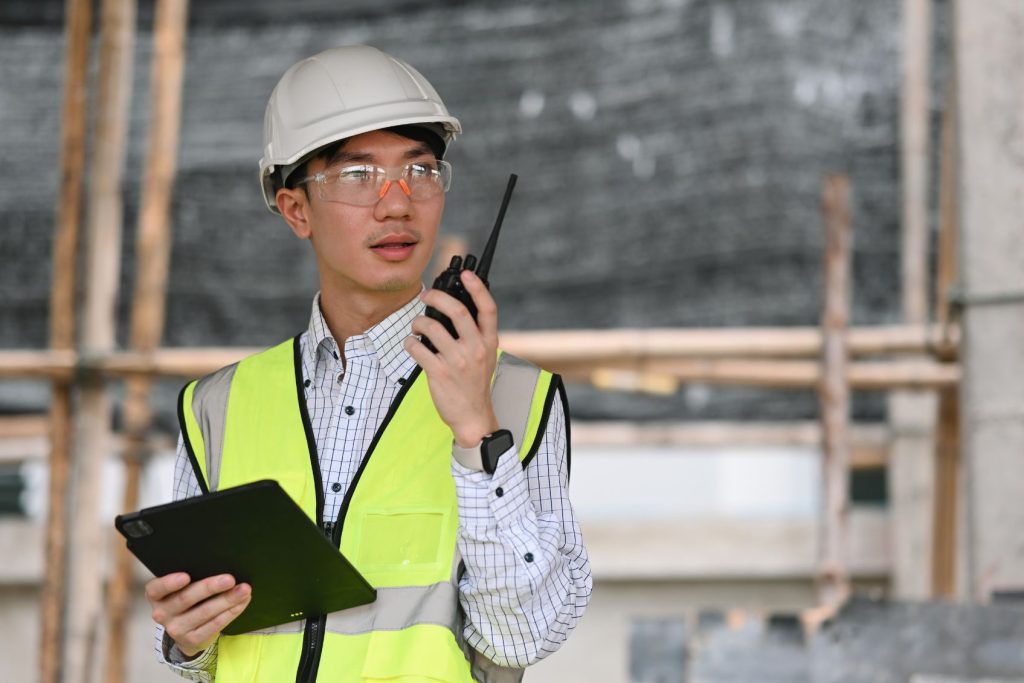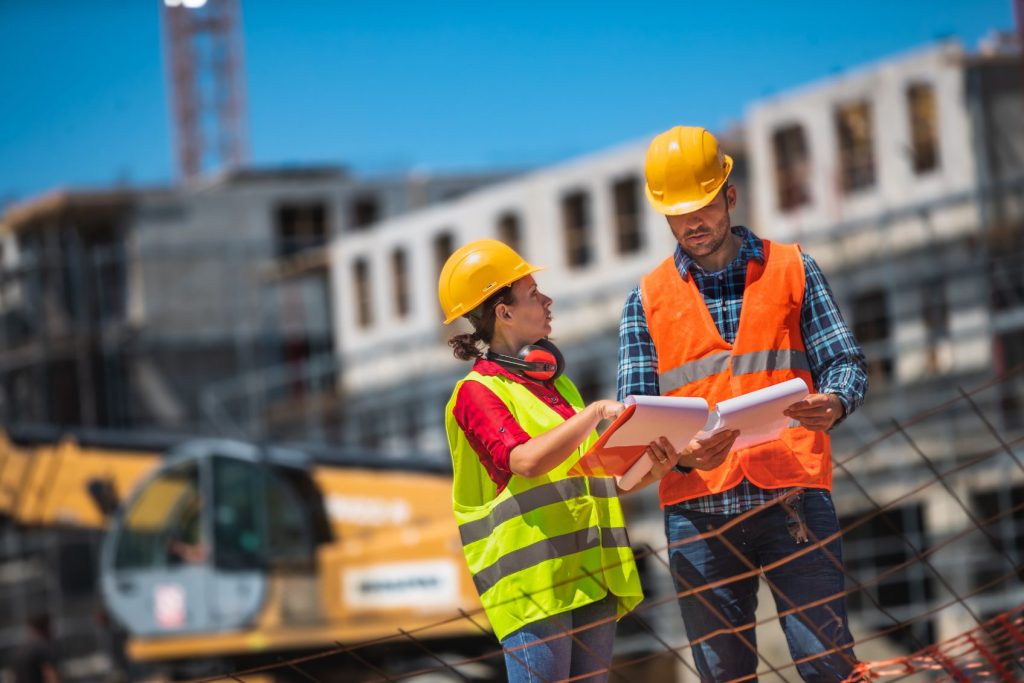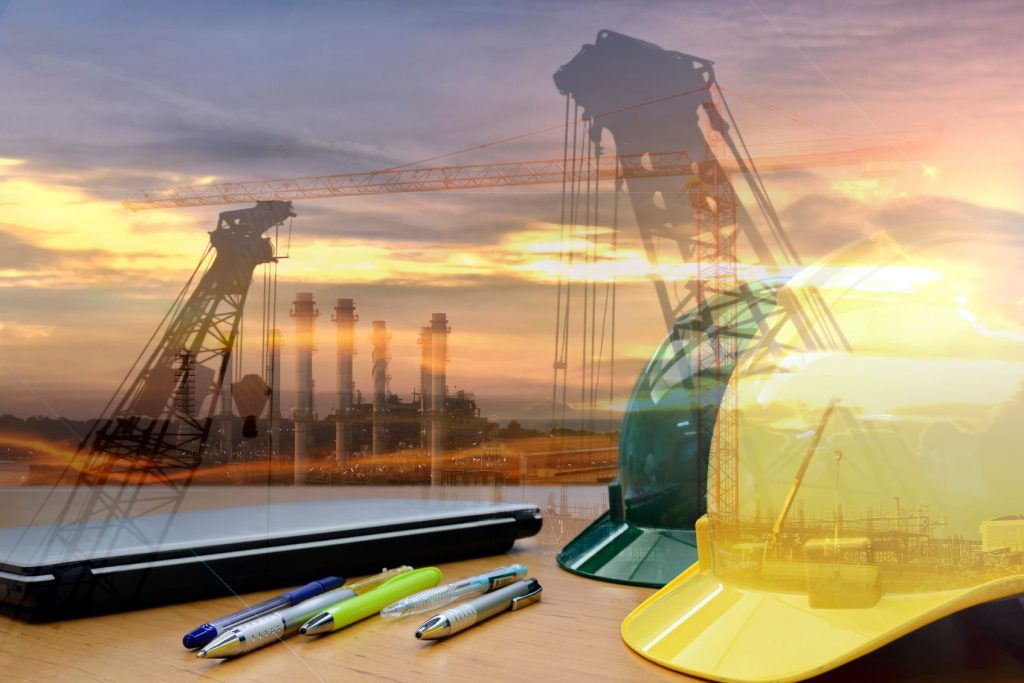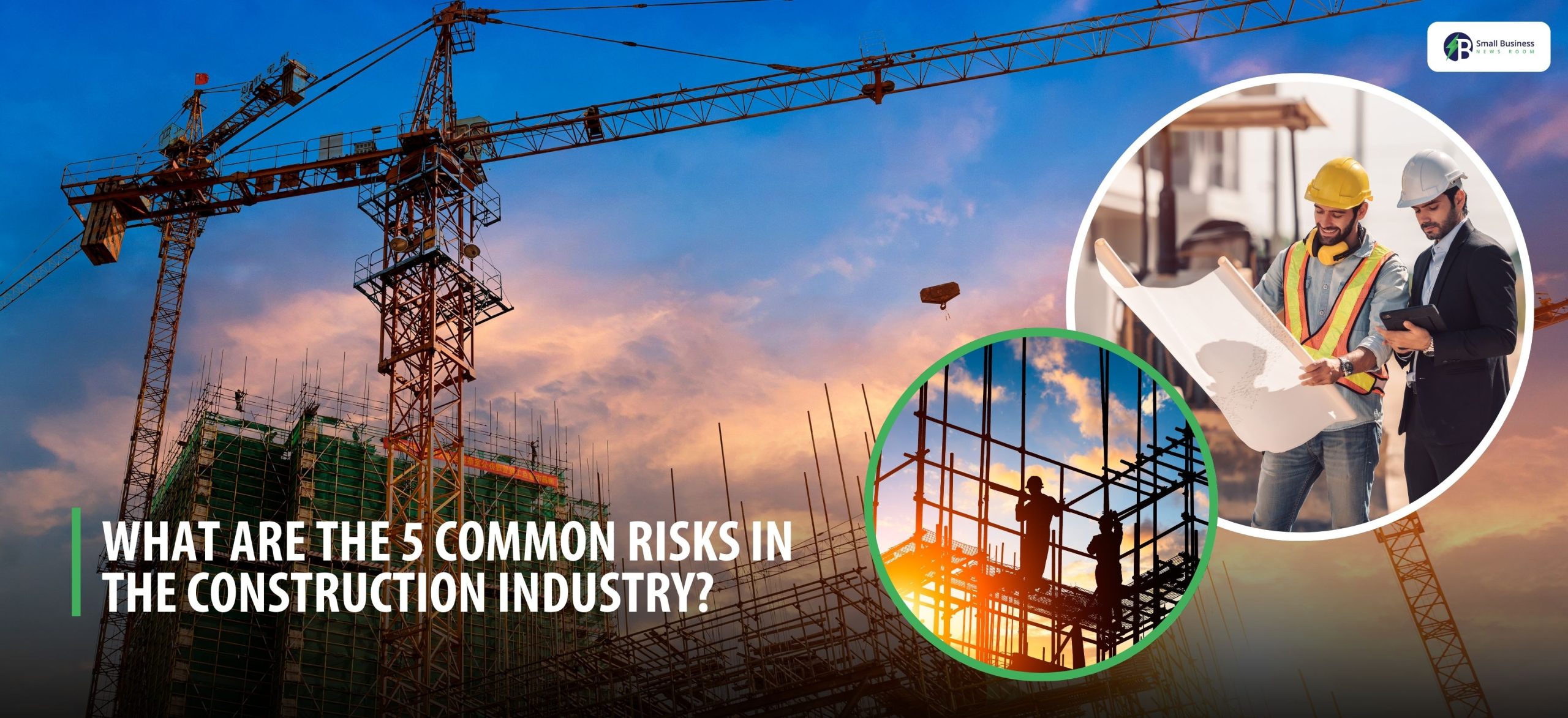Table Of Contents
- Top 5 Risks In The Construction Industry
- Loss of Paperwork
- Completion Delays
- Safety Hazards
- Errors in Design
- Changes
- The Value of Good Communication for Construction Operations
- Importance of Project Management
- Technology is Transforming Construction
- Building Information Modeling (BIM)
- Construction software
- Crafting Effective Client Relationships
- Upskilling Employees
- Sustainability for Buildings
- Final Words
What Are The 5 Common Risks In The Construction Industry?
Last Updated on: September 12th, 2025
When most people are asked about the risks of the construction industry, many think about the dangers of the job. However, when you look at everything as a whole, there is much more to take into consideration.
The fact is management and construction owners have their own concerns to worry about. One wrong move and the entire reputation of a business can be affected.
Below we are going to talk about some of the most common risks in the industry so that you know what to watch out for.
Below, we are going to talk about some of the most common risks in construction industry so that you know what to watch out for.
Let’s get started.
Top 5 Risks In The Construction Industry
Here, in this section, I am going to talk about the top 5 risks in the construction industry.

Loss of Paperwork
As you can probably imagine, there are a lot of invoices, contracts, and other forms of “paperwork” in construction. If something happens to go missing, it can significantly impact a project in more than one way.
If you haven’t already, it’s worth finding the right software and tools to digitize elements of your business. They will streamline productivity and production, increasing the quality of your builds.
Just check out this best construction estimating software for example. It’s a great option to help manage your finances and keeps your jobs more profitable.
Completion Delays

Delays are nothing new in any industry, and while not every one of them can be prevented, it’s still a good idea to understand why they occur. For instance, bad weather can happen unexpectedly, but you may be able to put important jobs in a specific season.
A few others to read further into include:
– Socio-political changes
– Miscommunication
– Poor scheduling
Safety Hazards
Above we mentioned how construction jobs have certain dangers. The right professionals need to know how to correctly use heavy machinery and how to stay aware of hazardous materials.
Without conducting the necessary assessments and training each of your team members correctly, someone could get hurt. This isn’t just terrible for the well-being of your employees but again can cause a loss of income if the job site is not safe.
Errors in Design

The building isn’t an easy task to complete. If not every aspect is thought out carefully, a mistake can be made in the overall design.
This error is on the business, and any materials, added labor, and damage to surrounding areas will be cut from your profit. While nobody’s perfect, spending time planning everything out can reduce how often they occur.
Changes
It’s completely normal for clients to make changes to their builds as new ideas arise. However, it’s still important to include it as a risk. Being prepared might help save you some extra cash.
Changes can extend build time which increases project material and labor costs. To keep these alterations to a minimum it’s important to sit down with your client and get a complete understanding of what they want and desire.
The Value of Good Communication for Construction Operations

The communication isn’t always afforded the importance that it deserves on site, but it is indispensable to the smooth operation of the project.
If the client, the contractors, the architects, and the suppliers all fail to communicate with one another, problems will quickly develop. One small misinterpretation of delivery or design specifics will result in avoidable delays.
The best solution to this is through the establishment of transparent means of communication.
Regularly scheduled meetings, daily updates, and the adoption of project management tools ensure everyone is on the same course.
If everyone knows their roles and when to complete the tasks, performance becomes faster and issues are easier to correct.
Importance of Project Management

It can significantly impact the construction sector through effective project management. Good management keeps the timeline, budget, and resources in check, while also ensuring the project proceeds according to plan.
For instance, where resources are scarce, the project manager can swiftly alter activities so the workers continue working rather than waiting.
They also ensure safety is not overlooked and the quality standards are maintained. With poor management, an ordinary project becomes messy and expensive.
Technology is Transforming Construction

Technology is revolutionizing the manner in which construction projects are planned as well as carried out. Work previously was largely manual, but today, equipment that provides for swiftness and accuracy is employed.
Building Information Modeling (BIM)
This allows teams to create full 3D models of the project before construction begins, with reduced design mistakes.
They use drones to inspect locations and collect data, which increases efficiency and safety.
Construction software
They are applied for the management of the documents, schedules, and finances in one place.
Through the application of newer technology, businesses will save money, make fewer mistakes, and achieve better results.
Crafting Effective Client Relationships

In construction, satisfaction is the key to additional jobs and word-of-mouth. That’s why relations are as important as the job itself.
Transparency over price, keeping clients in the loop, and listening to their concerns helps gain their trust.
If clients feel valued and kept aware, they will less often change suddenly and will recommend your company to someone else.
Upskilling Employees

The construction techniques and tools are continually evolving. Employees who are updated on new procedures perform better and safer on the site.
Periodic training sessions reduce accidents and also boost the level of output.
Investing in training also shows the employees that the company values their growth, thereby making them highly motivated as well as loyal.
An effective team with confidence is one of the best assets that any construction company has.
Sustainability for Buildings

Sustainability is increasingly crucial in construction. Clients are environmentally conscious and energy-efficient, reducing energy consumption and utilizing sustainable construction materials.
Organizations that employ green strategies not only minimize their environmental impact but also enhance their brand image.
Simple steps such as the use of recycled materials, reduction in waste, and the construction of energy-saving buildings would help a lot.
And in most regions, green activities would be rewarded and subsidized by the government.
Final Words
There’s no denying that the construction industry is risky, but it can also be full of rewards. By planning carefully and utilizing the correct software, you can push your business toward success.















